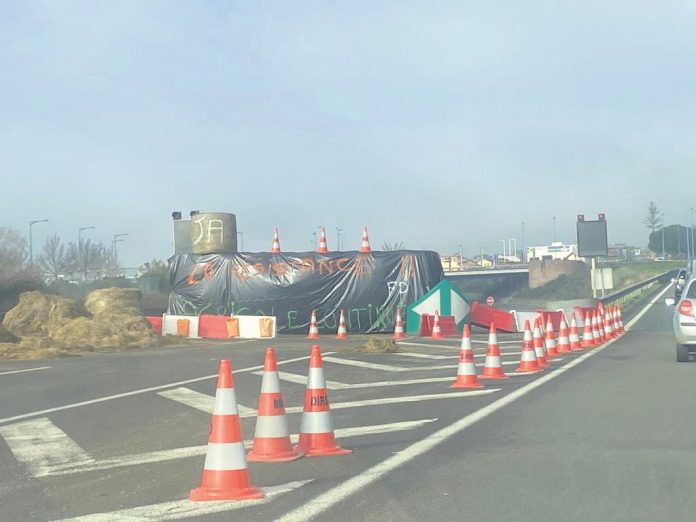Terry Adams, South West France
Since the parliamentary elections in 2022, French president Emmanuel Macron has presided over a minority government.
His response to this has been to move even further to the right in an attempt to get his party’s programme through the legislature, and to undercut the threat posed by Le Pen’s far-right party in the European elections which take place later this year.
Against this background, a French agricultural crisis has erupted. Farmers have taken to the streets (actually to the roads) with their grievances – “colère des agriculteurs”, or farmers’ anger.
The protests which echo the 2018 Gilets Jaunes ‘yellow vest’ movement have blocked major roads and some city centres, and have now been stepped up, to in effect lay siege to Paris with eight major roads into the capital blocked.
The farmers are protesting a planned increase in the diesel fuel tax (it is set at a lower rate for farmers), over-regulation, low prices received for their produce and high cost increases.
The new French prime minister, Gabriel Attal, has attempted to pacify the farmers by putting off the diesel tax increase and promising to cut regulation and paperwork. It’s unlikely this will be enough to satisfy the farmers who will want to press a weak government into making more concessions.
What is lacking in this situation is a generalising of the grievances and the protests. The plight of the small farmers is no different to others who are struggling to make a living.








